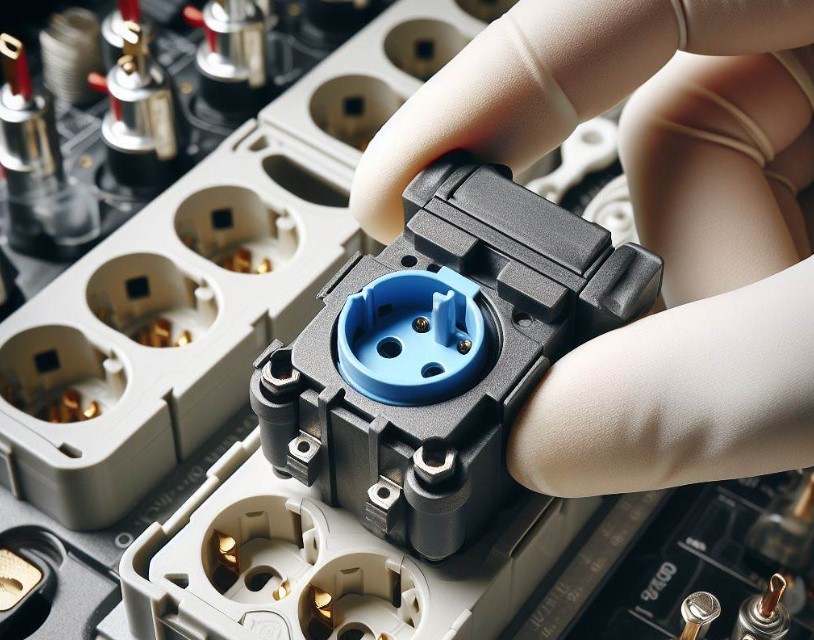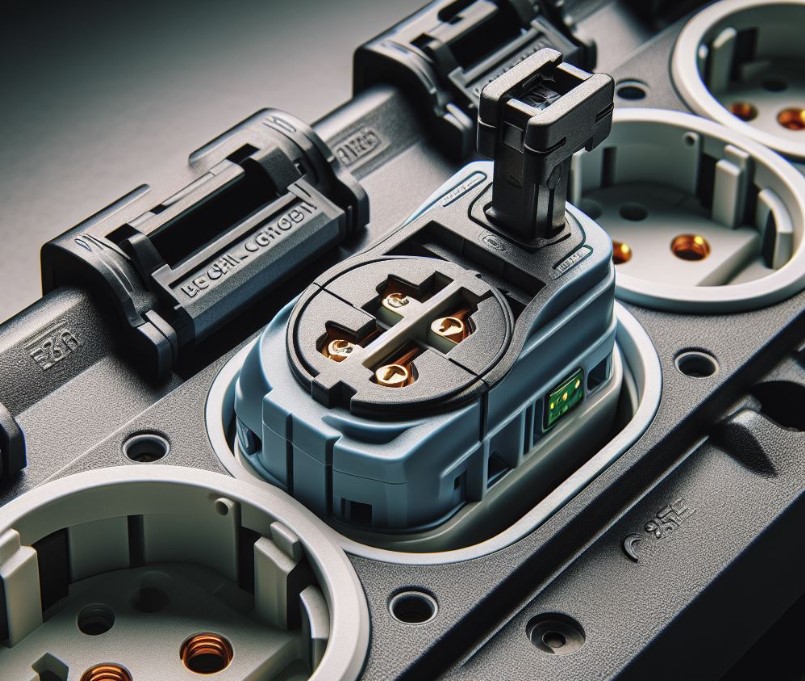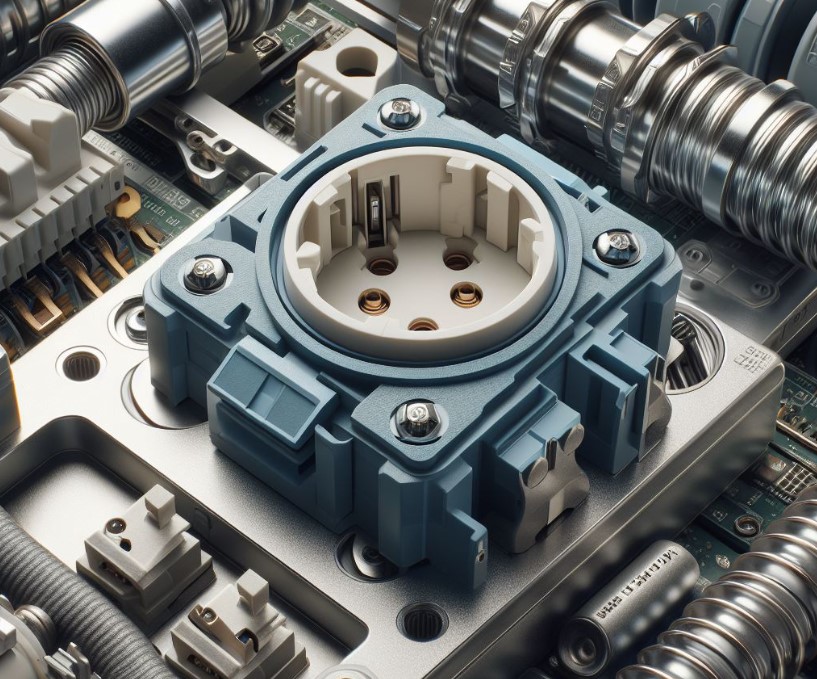What Is A Bus Plug? A Complete Breakdown
What Is A Bus Plug? This question might seem technical, but understanding it is crucial for those involved in electrical engineering and industrial power systems. A bus plug is essentially a component that allows for flexible distribution of power in a large building or industrial setting. It connects to a busway, also known as a bus duct, providing a convenient and safe way to tap electricity off the main line.
Key Takeaways
- A bus plug connects to a busway for power distribution.
- It enhances flexibility and safety in electrical systems.
- Used extensively in industrial and commercial settings.
- Allows for easy power relocation and upgrades.
What Is A Bus Plug?
A bus plug is designed to make electrical power distribution more efficient and adaptable. In large facilities like factories or commercial buildings, power needs can change frequently. Bus plugs offer a solution by allowing power to be tapped at any point along the busway, without the need for extensive rewiring.

Functionality and Design
Bus plugs are composed of a housing that contains electrical components like circuit breakers or fuses. These components protect the electrical circuit from overloads or short circuits. The design of a bus plug often includes safety features, such as shut-off mechanisms, to ensure safe operation.
Advantages in Industrial Settings
In an industrial environment, where machinery and equipment placement can often change, bus plugs provide a significant advantage. They allow for easy relocation of power sources, ensuring that electrical distribution can keep up with evolving floor layouts.
Types of Bus Plugs
There are various types of bus plugs available, each suited to different needs and power capacities. Understanding these types will help in selecting the right bus plug for specific applications.
Fusible and Non-Fusible Bus Plugs
Fusible bus plugs incorporate fuses and are used for their disconnecting ability and protection against overcurrent. Non-fusible bus plugs, while lacking in disconnecting features, are often chosen for their continuous power supply capability.
Voltage and Amperage Ratings
Bus plugs are also categorized by their voltage and amperage ratings. These ratings determine the amount of power the bus plug can safely distribute. Selecting the correct rating is crucial for the safe and efficient operation of the electrical system.
Installation and Maintenance
Proper installation and regular maintenance are vital for the optimal functioning of bus plugs. They ensure safety and prolong the lifespan of the electrical distribution system.

Installation Considerations
When installing a bus plug, factors such as the type of busway, the electrical load, and the environmental conditions of the installation site must be considered. Professional installation is recommended to ensure compliance with safety standards and regulations.
Maintenance and Safety
Regular maintenance, including inspections and cleaning, is necessary to keep bus plugs in good working condition. This preventative approach helps identify potential issues before they become serious problems, ensuring the safety and reliability of the power distribution system.
Bus Plug Applications
Bus plugs are widely used in various settings due to their flexibility and efficiency in power distribution.
Industrial Applications
In industries, bus plugs are essential for powering heavy machinery, lighting systems, and other electrical equipment. Their adaptability makes them ideal for factories with changing layouts and power needs.
Commercial Uses
In commercial buildings like malls and office complexes, bus plugs facilitate the distribution of power to different floors and sections. This adaptability is particularly beneficial in environments where tenant spaces frequently change.
Choosing the Right Bus Plug
Selecting the right bus plug involves understanding the specific needs of the electrical system it will serve.
Factors to Consider
Key considerations include the type of busway, the electrical load, and the environmental conditions of the installation site. It’s also important to consider future expansion and changes in power needs.
Professional Guidance
Consulting with a professional electrician or electrical engineer is advised to ensure the right selection. Their expertise can guide the decision-making process, ensuring that the chosen bus plug meets the specific requirements of the electrical system.
What Are Bus Plugs Used For?
Bus plugs are primarily utilized for distributing electrical power along a busway (or bus duct) in industrial and commercial settings. They provide a flexible and efficient method of power delivery, crucial in environments where the layout or power requirements may frequently change.

These devices enable power to be tapped off at various points along the busway, making them ideal for large facilities like manufacturing plants, warehouses, and large office buildings.
The key advantage of bus plugs lies in their adaptability; they can be easily moved or added to different locations on the busway, facilitating changes in power distribution without the need for extensive rewiring or electrical work.
What Is The Difference Between Tap Box And Bus Plug?
The primary difference between a tap box and a bus plug lies in their functionality and application within electrical distribution systems. A tap box is a simple connection point on a busway used to hardwire a branch circuit.
It doesn’t typically include overcurrent protection and is a more permanent solution for branching off power from the busway.
On the other hand, a bus plug is a more complex device that not only provides a connection point but also includes overcurrent protection, such as circuit breakers or fuses.
Bus plugs are designed for flexibility and can be easily installed, moved, or removed from the busway, making them ideal for dynamic environments where power needs can change. This adaptability is not something tap boxes are designed for, as they are usually a fixed power distribution point.
What Is A Fusible Bus Plug?
A fusible bus plug is a type of bus plug that incorporates fuses for overcurrent protection. It is designed to protect electrical circuits from excessive current by using a fuse, which is a sacrificial element that melts or blows out when the current exceeds a certain threshold.

The primary purpose of a fusible bus plug is to provide a safe and controlled connection to a busway, with the added safety feature of disconnecting power in case of an overload or short circuit.
This type of bus plug is particularly useful in industrial settings where heavy machinery or equipment is used, as it ensures the safety and integrity of the electrical system.
The fusible element in the bus plug must be appropriately rated for the circuit it protects, and it must be replaced after a fault condition to restore power. Fusible bus plugs are a preferred choice in many scenarios due to their reliability and straightforward design.
Conclusion
In conclusion, a bus plug is a vital component in modern electrical distribution systems, especially in industrial and commercial settings. Its ability to provide flexible, safe, and efficient power distribution makes it an indispensable tool.
When selecting and installing a bus plug, it is essential to consider the specific needs of the environment it will serve, ensuring safety and efficiency in its operation.
Top FAQ’s
Can Bus Plugs Be Used with All Types of Busways?
Bus plugs need to be compatible with the type of busway they are connected to. It’s important to match the bus plug’s specifications with the busway’s design, voltage, and amperage capacity for safe and efficient operation.
What Is the Lifespan of a Bus Plug?
The lifespan of a bus plug can vary based on its usage, environment, and maintenance. With proper installation and regular maintenance, a bus plug can function effectively for many years.
How Are Bus Plugs Installed?
Installation of bus plugs should be carried out by qualified professionals. It involves determining the correct position on the busway, ensuring the bus plug matches the busway type, and safely connecting it to distribute power effectively.
What Maintenance Does a Bus Plug Require?
Regular maintenance for a bus plug includes inspections, cleaning, and testing to ensure its optimal functioning and safety. Maintenance schedules can depend on the environment and usage frequency.

Welcome to the exhilarating world of Matt Rex, a professional car racer turned renowned vehicle enthusiast. Immerse yourself in his captivating blog as he shares heart-pounding adventures, expert reviews, and valuable insights on cars, trucks, jets, and more. Fuel your passion for speed and discover the beauty of vehicles through Matt’s engaging stories and meticulous expertise. Join the ever-growing community of enthusiasts who find inspiration and expert advice in Matt Rex’s blog—a digital hub where the thrill of speed meets the pursuit of knowledge.



![Can Am Defender Check Engine Light? [Decoding the Signal]](https://www.turbochaos.com/wp-content/uploads/2023/11/Can-Am-Defender-Check-Engine-Light-768x550.jpg)


